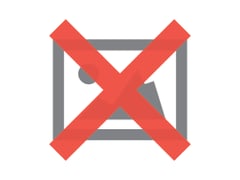REDWOOD LOGIN
Redwood PortalLTL
SCS
SCS Support
Rockfarm
Less than Truckload shipping can seem complex and overwhelming to companies whose core competencies don’t involve freight shipping. In fact, here at LTX, we speak with companies all the time that don’t realize common LTL mistakes they are making. Mistakes that are costing their business time and money.
In this article, we will review the top five common mistakes companies make when it comes to LTL shipping.

A tariff is essentially a rate matrix that establishes the base rates of individual shipments while taking into account all the factors that make up LTL pricing: origin zip, destination zip, class, and weight. This is the price that carriers will then give discounts off of. The issue is, that each carrier has their own tariff that they work with, which means each tariff gives you a different base rate for your shipments.
A tariff is so complex because it has to decipher so much data. I mean with approximately 43,000 zip codes within the United States, that gives you over 1.8 billion different zip to zip combinations. That’s 1.8 billion different base rates, before even considering weight and class.
So, the problem with bidding off of multiple tariffs is that if you do not have an advanced software system or the ability to have all carriers bid out on the same tariff, it would be near to impossible to clearly define your pricing program and actual cost savings.
For example, say the year prior you worked with ABC Carrier and they gave you an 85% discount off of their ABCCarrier2016 Tariff. You then go in to renegotiate for the next year and are dead set on getting your discount up to 87%. ABC Carrier agrees but says you will receive the 87% discount off of the ABCCarrier2017 Tariff. You leave feeling accomplish, except what you don’t realize is that 87% off of the 2017 tariff could actually be costing you more than 85% off the 2016 tariff.
Shopping around for the best carrier(s) is the first step when bidding out your LTL freight. Each carrier’s rates will vary depending on the lanes and commodities you’re shipping. The issue here though is that many shippers look at the base rate and discount, then pick the cheapest rate. In reality, there are many more factors that need to be acknowledged before signing the contract.
Here are some of the other factors you need to consider when vetting carriers:
• Flexibility
• Customer service
• Technology
• Accessorial Charges
• Performance and Accountability
While competitive pricing is one aspect to be considered during the selection process, it’s imperative to examine the total value of each potential carrier.
One out of every four freight bills contains an error that could affect your company’s bottom-line. If LTL freight shipping isn’t your specialty, there is a huge chance you are missing errors on your freight bill and paying dollars you don’t need to pay.
Manual auditing and payment are time-consuming and often requires additional administrative staff time. For companies who lack these resources, they can save time and money by outsourcing Freight Audit and Pay through a Third Party Logistics (3PL) company.

If you and your company are still manually pricing out quotes and placing individual pick up orders, you’re wasting hours of employee time that could be spent on other meaningful tasks. A transportation management system (TMS) is software that facilitates interactions between the company’s order management system, warehouse/distribution center management system, and carriers. TMS software can consolidate all of your LTL freight needs into once place. It will include route planning and optimization, load optimization, execution, freight audit and payment, advanced shipping, order visibility and carrier management.
Although, a TMS software can be very expensive to purchase as well as integrate into your business. Partnering with an established 3PL who already owns top-of-the line TMS software and has the ability to integrate with your current systems is ideal.
When dealing directly with a carrier, many shippers focus primarily on receiving the highest discount. In reality, there are so many other things that should be a factor in this conversation. Here are the major aspects that you should be taking into account when negotiating your carrier contracts:
• Base Rates/tariffs
• Discounts
• Accessorial Charges
• Fuel Charges
• FAK (Freight All Kind)
If any of these mistakes sound familiar to you, we need to chat. Between the LTX staff and board members, we have over 100 years of experience in the freight industry, specializing in finding our customers the most efficient LTL carriers at the best price. On top of that, we provide cutting edge data analytics and reporting software, freight audit and payment, track and trace, contract negotiations, and personalized customer service. Contact us today to set up a free consultation to see how LTX can support your supply chain and save you money.